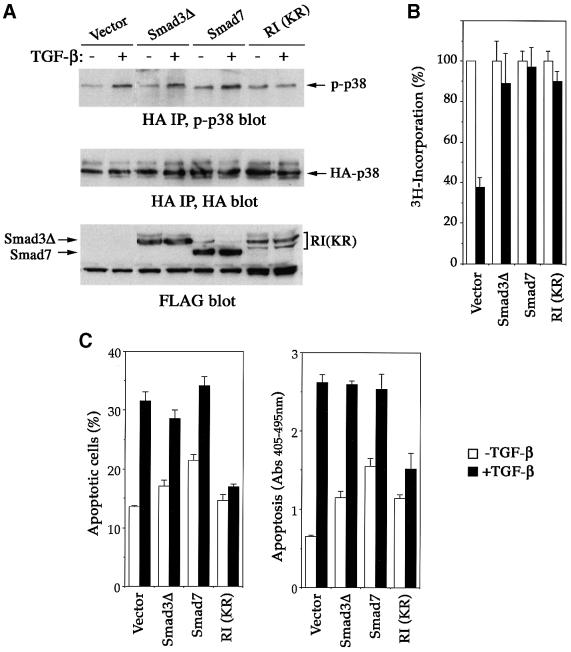Fig. 4. Dominant-negative TGF-β receptor but not dominant-negative Smad3 or inhibitory Smad, Smad7, blocks TGF-β-induced p38 activation and apoptosis. (A) TβRI(KR), a kinase-deficient mutant type I receptor, but not Smad3ΔSSVS, or inhibitory Smad, Smad7, inhibited TGF-β-mediated p38 activation. NMuMG cells, transfected with HA-p38 and the indicated expression plasmids, were incubated with or without TGF-β for 2 h, then TGF-β-mediated p38 activation was assayed by phospho-p38 blotting (top panel) following anti-HA immunoprecipitation of transfected p38. The levels of HA-p38 in the immunoprecipitates (middle panel) and FLAG-tagged Smads or receptor in total cell lysates (bottom panel) were shown as indicated. (B) TβRI(KR), Smad3ΔSSVS and Smad7 all inhibited the antiproliferative effect of TGF-β as measured by DNA synthesis. (C) TβRI(KR), but not Smad3ΔSSVS or Smad7, blocks TGF-β-induced apoptosis. Apoptosis was assayed as in Figure 1A. White bars, without TGF-β treatment; black bars, with TGF-β treatment. RI, TβRI.

An official website of the United States government
Here's how you know
Official websites use .gov
A
.gov website belongs to an official
government organization in the United States.
Secure .gov websites use HTTPS
A lock (
) or https:// means you've safely
connected to the .gov website. Share sensitive
information only on official, secure websites.
